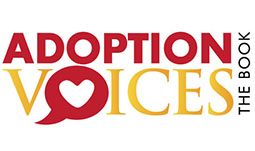Foster Families |
As I was writing my book about adoption, I began to think about all of the people who have adopted children from foster care. Depending on the age of the child, these children suffer all of the trauma that I described in my book plus the trauma of whatever they witnessed in their families of origin. They are further burdened with the knowledge that they do have a parent or parents somewhere in the world that lost their right to raise them. These lost birth mothers or parents, no matter how cruel they were or how many destructive psychological or addictive behaviors they manifested, still own a place in the child’s heart. This is an added burden to the adoptive parent, who needs to be careful about not demonizing these people, because this will only add to the child’s sadness and sense of loss.
I once met a mother who had adopted a five-year-old out of foster care. It was around Christmas, and he tore open all of the Christmas presents and took down the tree piece by piece. With no real training this new adoptive mother did the best she could.
I met her the following year, which was Christmas time as well and she told me a story that sums up the issues for parents who do adopt out of foster care. A year later this child’s behavior was somewhat calmer, and she asked him what he wanted for Christmas, and he told her. He then asked his new mother what she wanted, and she said, “a good little boy.” He said something that was so poignant and so on point about adoption it made my heart cringe. He said, “when he comes, can I stay?”
I said, “please find a therapist as fast as you can for both of you. Since many therapists are not trained in these issues of adoption or adoption out of foster care, please find someone who is. Do you understand the underlying fear that he continues to have about his ability to stay with you?” She did not.
I then introduced her to a concept that I learned from Patty Cogen’s wonderful book, “Raising Your Internationally Adopted Child.” Despite the title, she has good advice for anybody who’s adopting in any manner. She makes a distinction between chronological age and what she calls, “family age.”
What an all-important concept, does your child from foster care know how to live in a family in any sense of that word? If that child has come from a chaotic situation, which is very possible, that child does not know how to do this. It goes a long way to explaining mini acting out behaviors. The deficit of not knowing how normal families behave and the fear that they will be given away again, creates a great deal of anxiety for these children.
What a child needs is a sense of structure and predictability in every way, from when they eat to when they sleep and all the other rituals of life. Our children needed this kind of structure and predictability, but it is vitally important to a child who has led a chaotic life. I did not talk about this in my book but that is certainly how I raised my adopted children. I was consistent in every way, from the love that I showed every day in every way and the consequences for behavior that did not serve themselves or the family. The consequences were “natural consequences,” based on whatever behavior had taken place and never included any corporal punishment in anyway. For instance, if they had taken their crayons and scribbled on the wall, they were given the tools they needed to wash the wall, that is a natural consequence and one that usually sticks in the child’s mind.
As it is with all adoptive parents, it’s also important to remember that whatever behavior is going on is not about you. Children of all ages act out when they can’t find the words to tell you what is going on. I don’t mention it in my book, but you will see in the stories that I enter every situation no matter how confused I am with a sense of curiosity instead of anger. A good child therapist would tell you that it is better to respond to whatever situation you are facing, rather than reacting to it.
Is this always easy to do, no. But calm curiosity instead of intense anger gets at the heart of whatever is going on with your adopted child. Anger creates more fear. If the real issues involving your child are not resolved there is more acting out.
I do not write about this in my book, but I learned all of this from a child therapist that I visited several times before I adopted my children. I did this because I was raised by a very angry, mentally ill mother, who was emotionally and physically abusive. I did not know how to be a mother and so I learned, and I loved what I learned because it made so much sense. Was I always able to behave this rationally, not always, but certainly as much as I could. When I could see that calm response solved problems instead of creating them, it was very easy for me to do this very consistently.
I would like to recommend a book at this point for everyone, “How To Talk So Kids Will Listen & Listen So Kids Will Talk,” by Adele Fabre and Elaine Mazlish.
